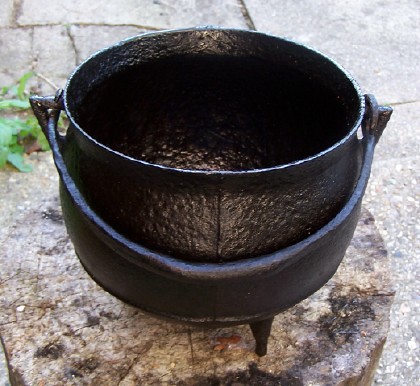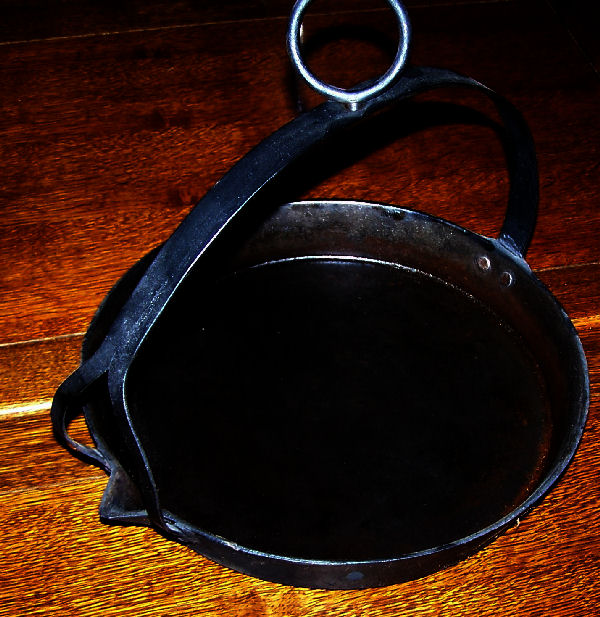Ok quick update, the pot has now spent three times in the oeven with each time getting blacker and blacker. I reckon just one more coat of lard will make it a nice uniform jet black coating like red's and the OP's. Will post pic later.
mrcharly I've always read/been told that a good non-stick cast iron surface is one that is as smooth as possible!?!?
Here's what it looks like after 3 times in the oven with each time being 2 hour at gas mark 8. Why dosn't it look uniform black like British Red's one does? Am I too high a tempreture or using too much lard? I message the lard by hand and think I may be using too much.

mrcharly I've always read/been told that a good non-stick cast iron surface is one that is as smooth as possible!?!?
Here's what it looks like after 3 times in the oven with each time being 2 hour at gas mark 8. Why dosn't it look uniform black like British Red's one does? Am I too high a tempreture or using too much lard? I message the lard by hand and think I may be using too much.

Last edited:


